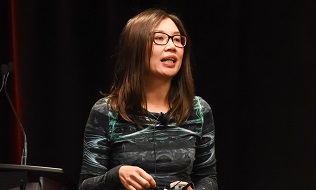

Inflammatory bowel disease is on the rise, particularly among children. And at a cost to the Canadian economy of approximately $2.8 billion a year, early intervention is key, a doctor told Benefits Canada’s Calgary Drug Trends Summit.
“The whole idea with IBD now is to treat patients early on in their disease,” said Dr. Yvette Leung, a gastroenterologist and an assistant clinical professor at the University of Calgary. “If you treat early on, you can hopefully prevent patients from needing surgery or multiple surgeries. IBD is harder to treat as the disease progresses over time.”
Biologics drugs have made a significant difference in treatments for patients with Crohn’s disease and ulcerative colitis, two main forms of inflammatory bowel disease, Leung noted. During her presentation at the Calgary event on Nov. 2, she noted her concerns about switching patients who are doing well on one medication to a different drug, such as a biosimilar, simply because of the price.
Read: How do patients feel about biosimilars?
“We, as doctors, are trying to contain costs and improve quality of life,” she said, noting that when evaluating the cost of a drug, it’s also important to consider its efficacy. “An ineffective drug does not amount to savings for society, if the patient then goes on to disability, hospitalization and surgery.”
She noted that if a patient was doing well on a biosimilar, she’d also go to bat for that drug. “We, as gastroenterologists, are not opposed to biosimilars. . . . We are asking for human data on the same disease. . . . Show me that this medication works the same way in my patient population as the innovator drug and not in a different population,” she said.
Read: Getting plan members the right drugs at the right time
Leung believes it’s important to see the bigger picture. When patients are on the right medications, she noted, it means they’ll be able to contribute to the workplace and avoid expensive surgeries and hospitalizations. She encourages plan sponsors to think holistically and not just focus on costs. “With the right medications, you’ll gain a productive employee. We also have evolving data that if you treat the right patient, with the right medication, at the right time, there may then be an opportunity in the future to step down on therapy, which in turn is a cost savings.”
Leung said she believes supporting research and development is key. “People do lose their response to biologics over time,” she said. “Approximately 10 per cent of patients a year will lose their response to biologics or will have to come off biologics because of side-effects.”
Read more articles from the Calgary Drug Trends Conference
